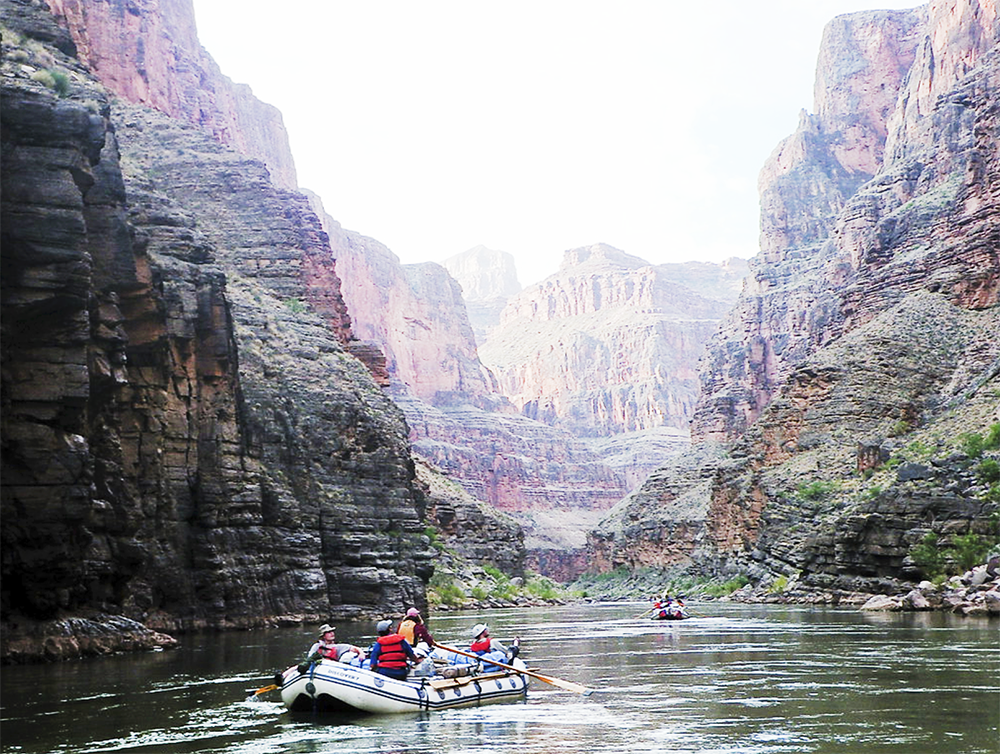Beginning a new day rafting the Colorado River – Grand Canyon/By Al_HikesAZ/Creative Commons
By Ariana Brocious | Arizona Public Media, Lexi Peery | KUER and Luke Runyon| KUNC
A showdown is looming on the Colorado River. The river’s existing management guidelines are set to expire in 2026. The states that draw water from it are about to undertake a new round of negotiations over the river’s future, while it’s facing worsening dry conditions due – in part – to rising temperatures.
That means everyone with an interest in the river’s future – tribes, environmentalists, developers, business groups, recreation advocates – is hoping a new round of talks will bring certainty to existing water supplies and demands.
The table at which those deals will be hammered out is beginning to take shape. The federal government, mostly in the form of the U.S. Bureau of Reclamation, and the seven basin states hold the greatest power in determining what will be up for debate, what will be left out, and whose voices are listened to.
To prepare for the talks, and to coalesce around a set of priorities, leaders in the individual states are attempting to settle their internal issues before coming to that broader negotiating table. We reached out to leaders in three of those states to learn how they’re preparing:





